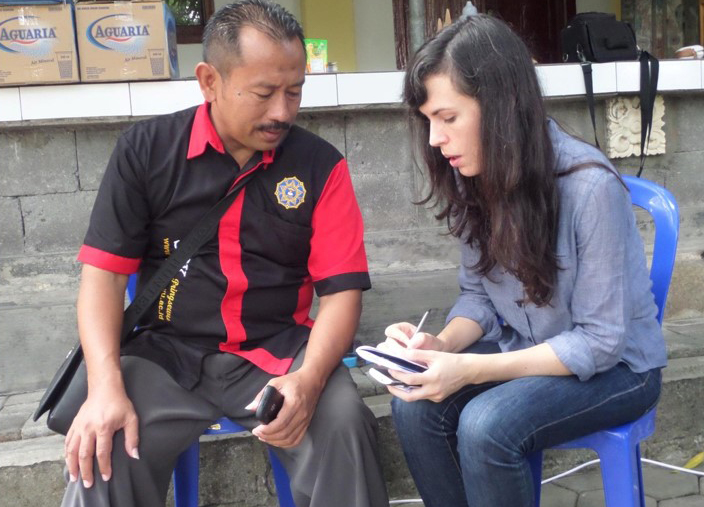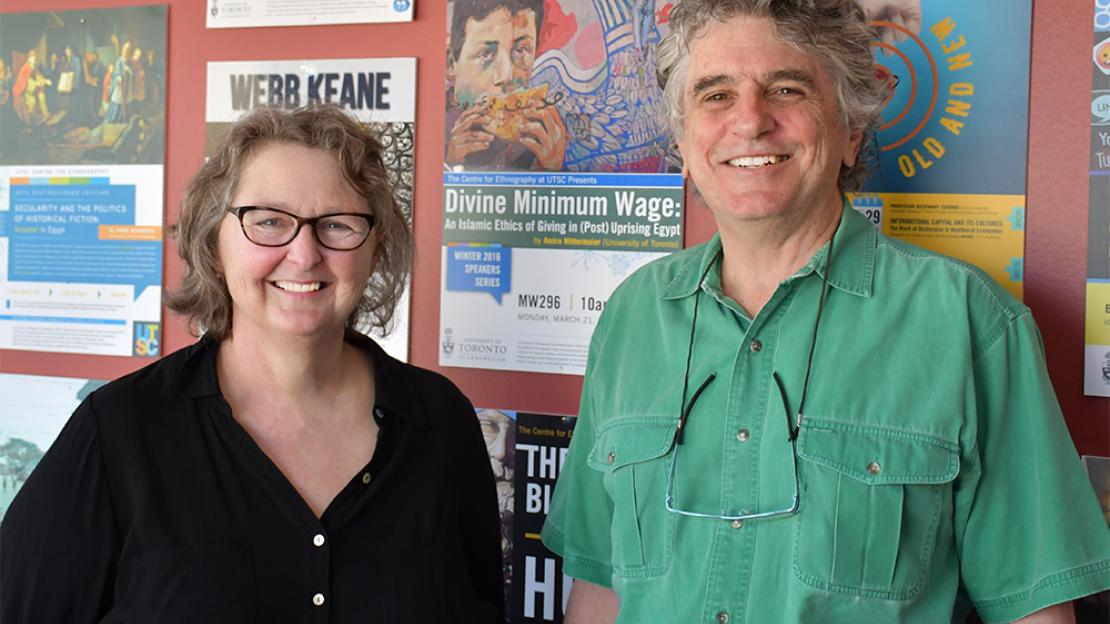At the Centre for Ethnography, the work is more of a marathon than a sprint.
Ethnographic research aims to detail the lives of people in a particular community. Typically, ethnographers have to spend a lot of time with their subjects.
It can take more than 20 years of studying a community for an ethnographer to feel ready to publish. Anthropologists repeatedly return to the same community to create a detailed and historically rich narrative.
“Ethnography values slowness in research and writing that is mostly devalued in the rest of the university,” says Michael Lambek, Canada Research Chair in Anthropology for Ethical Life. “We go in and try to understand people’s lives from their own perspective. We do this to show what they value in their own world.”
Lambek is set to publish Island in the Stream, a book he has been writing for 40 years about a community in the Western Indian Ocean. He says each time he would find something new, he would address a new set of questions. He has travelled to the same community 11 times.
The Centre for Ethnography (CE) has just celebrated 10 years at U of T Scarborough. The CE helps to promote, fund and educate young cultural anthropologist interested in practicing ethnography.
“Ethnography is not a quick go in with your questionnaire, ask a few questions and depart,” says CE Director Donna Young, who is looking to publish an ethnography she’s been working on since 1992. “It’s always fully immersive, it takes time.”
Young’s book, A bridge to nowhere, examines the lives of impoverished people living in small settlements close to large timber reserves on Crown Lands in New Brunswick.
When she started her research, the community made a living by working in the woods. Today, those jobs have mostly vanished. The book looks at the creation and current conditions of the community.
The CE, with the Department of Anthropology, offers two upper-level undergraduate courses in ethnography. The third-year course teaches writing and research methods for ethnography, while the fourth-year course tasks students to explore the GTA community and conduct their own research.
“This gives them an opportunity to actually try field work,” Young says.
Young says it gives students a hands-on experience of what the job actually is. This year, three students had the opportunity to present their findings.
“I think they really got a sense of what a difficult enterprise it is,” Young says.
The CE has a 10-week writing fellowship for which they award grants to two Ph.D. candidates who have completed fieldwork and are either finishing their theses or turning them into ethnographic essays or monographs. The CE gives them an opportunity to focus on the art of ethnographic writing.
“Often grants dry up at the end of one’s graduate career so students find themselves teaching to make a living while also trying to write,” Young says. “There are more grants available for research than writing, so we thought to give grants where these students can focus directly on their writing,”
Jessika Tremblay, one of the 2017-2018 fellows, says the time she spent as a CE fellow was invaluable.
“The support from CE definitely helped to push my writing in terms of speed and quality,” Tremblay says. “Having the time to dedicate fully to writing is something that rarely happens in life, so I made the best of the opportunity.”

Her ethnography details the effects of high internet access rates on an urban neighbourhood in Indonesia. Tremblay says the CE has a warm atmosphere and is a welcoming space for both students and faculty.
The fellows also present talks and help mentor undergraduates with their writing.
“I am very proud of the Centre,” Young says. “It has been a really lively place and it has assisted a lot of people.”
